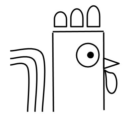Do you have a budding paleontologist in the house? Creating a unit study can be overwhelming. That is why we compiled this comprehensive resource list to help you learn more about dinosaurs or create a whole dinosaur unit study!
We hope the following resources are helpful and useful for doing your own Unit Study at home! Pick and choose what interests you and your student, and give yourself the freedom and flexibility to run down any rabbit holes that come your way!
Happy Learning!
Dinosaur Books
Use whatever books you have on hand and/or grab some from the library. If you need help finding some here are some lists to check out: National Geographic Booklist, Scholastic Books by age, 23 Favorite Dinosaur Books for kids by educators. Keep in mind that some history books can have a hearty dinosaur section, such as The Usborne Encyclopedia World History! Also, throw some fiction in the mix, such as Magic Tree House Dinosaurs Before Dark or the How do Dinosaurs….? Series.
Here are some of our favorites we checked out:





Online Dinosaur Games, Quizzes, and Activities
Dino Dictionary has every dinosaur you could want to look up!
Dino Exhibit – tvokids help Dino Dana in the dinosaur exhibit via games and activities. Super fun!
Dinosaur games and activities for kids — movies, timeline, fossils, dinosaur facts, and games such as build a dinosaur, name-a-saurus, painting and memory match.
Dinosaur name pronunciation – need help on how to pronounce those long complicated dinosaur names? Find help here!
T-Rex Quiz – test your knowledge!
Dinosaur Lapbook – From a Christian Perspective (super rare!) with related Bible verses. This lapbook is fantastic and easy to adapt for a wide range of ages! Pick and choose activities that best fit your student’s interests and abilities, adapt as needed.
Find FREE dinosaur report printables here for notebooking.
Dinosaur Themed Art, Crafts, and Hands-on Activities
Dinosaur dig – No need to buy a fancy kit, bury plastic dinosaurs or homemade dinosaur bones or cardboard dinosaur (simple, challenging) in kinetic sand, regular sand, or sensory bin (using rice, beans or similar), and use tools from around the house such as a pastry brush, old toothbrush, or paint brushes to let your student excavate for dinosaurs.
Ice Age Dinosaur Dig – freeze plastic dinosaurs or bones in ice blocks/cubes. Let your student chip away at the ice to “dig” out the dinosaur. great for warmer months to cool down!
Homemade dinosaur bones – make your own dinosaur bones out of salt dough, shape it like dinosaur bones or teeth and bake. Then use it for your own dinosaur dig!
Craft your own dinosaur out of cardboard! Here is a great simple one for younger kids, and a more challenging skeleton version for older students (make it for them to assemble, or have them make the whole thing depending on ability)
Dinosaur Art – check out Art for Kids Hub for some great how-to videos on drawing dinosaurs. How to Draw a dinosaur with shapes or pick your student’s favorite dinosaur to draw: Allosaurus, Stegosaurus, Velociraptor, Stegosaurus (younger kids), or Triceratops.
Language Arts
Research dinosaur names and origins and their meanings (Latin and Greek) The word dinosaur comes from Greek and means “terrible lizard.”
Find FREE dinosaur report printables here for note-booking.
Map Skills
Check out this interactive map of where dinosaurs have been found. Create, or color your own map and see where your favorites lived and have been discovered (simple map activity included in this lapbook)
Math
Measuring: Break out a tape measure and see how long different dinosaurs were.
Graphing: create a bar graph or chart comparing height, weight, and/or speed of different dinosaurs (related activity included in this lapbook)
Science, Vocabulary, and Related Topics for further discovery
Talk about the Classification of living things. Here are two Orders of dinosaurs.
Talk about Extinction – what does it mean, and what other animals have gone extinct or are endangered? Wild Kratts How to protect endangered species
What is The Food Chain and where do different dinosaurs fit into it?
Types of eaters: Carnivore, Herbivore, Omnivore
Become a paleontologist for a day or study different Paleontologists through history and their biographies
How do different animals regulate temperature? What does it mean to be Cold Blooded vs Warm-Blooded? Could Dinosaurs have been Warm-Blooded?
We’d love some feedback
Are you looking to create your own unit studies? Or do you enjoy utilizing what others have researched and put together?
Not everyone enjoys the planning and research involved in a unit study or more child led curriculum. We do! Let us know if you would like help with building your own unit studies or what other topics you are you interested in for your homeschool?
Drop a quick comment below and let us know! We’d love to hear from you.


